
“People are rightly concerned that [the Supreme Court decision, in Kelo v. City of New London] will give cities license to take private homes just to make wealthy developers even wealthier. But the [Massachusetts] House bill does not respond to that fear. Instead, it identifies certain places–‘a substandard, decadent or blighted open area’–as the only ones in which the power can be used.
It may be that this new requirement–given its vagueness–will prove toothless. But if the bill is meant to have bite, it appears to provide protection for those living in middle-class and wealthy neighborhoods while placing no additional limits on the use of eminent domain in poor neighborhoods. In other words, the legislation seems to suggest a simple, unjust rule: If you want to treat people unfairly, make sure it’s poor people.”
Professors David J. Barron ’94 and Gerald E. Frug ’63, on a Massachusetts bill to curtail eminent domain, The Boston Globe, Aug. 12.
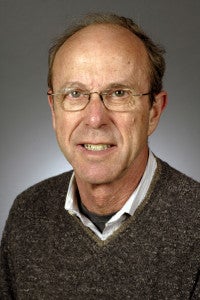
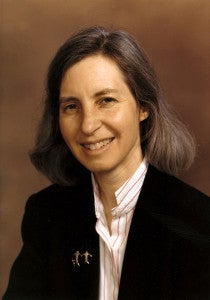
“For some time now, Republican and right-wing leaders have attacked the courts as ‘activist’ when they protect individual rights but not when they cut back on those rights or enlarge their own authority while shrinking congressional power.”
“This is misleading. The Court is no more ‘activist’ when it protects women, members of religious minorities, or gays and lesbians than when it forbids Congress from doing so. And this Court’s supposed respect for states’ rights disappears when a state democratically approves medical uses of marijuana or physician-assisted suicide.”
“The terms ‘activist’ and ‘conservative’ do not help. The meanings of both words depend on baselines that have been muddied or moved. ‘Conservative’ means to conserve, to keep–but some of those called ‘conservative’ want to overturn decisions and norms that have been in place for half a century.”
Professor Martha Minow, on the debate over Supreme Court appointments, The Boston Globe, July 21.
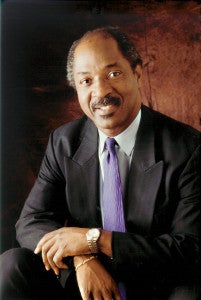
“While it is impossible here to catalog the significant judicial opinions by [Justice Sandra Day] O’Connor over the past 24 years, it is worth noting that she has been the swing vote on many significant and controversial issues including gender and race. She has affectionately and disparagingly been referred to as a ‘majority of one,’ in not allowing others to place her in a liberal or conservative box.”
“Her life experiences have certainly influenced her judicial philosophy and pragmatism. Considering herself to be a ‘cow girl’ from Arizona, she has consistently stood up to challenges of all sorts. This is hardly surprising, given her own experiences and background. Although O’Connor was one of the top graduates of Stanford Law School (in the same class as Chief Justice William Rehnquist), she was not offered a position at a major law firm in California because of her gender. Ironically, she was finally hired, not as a lawyer, but as a legal secretary, before finally, as a result of the consistently high quality of her work, being promoted to a position as a lawyer. That influenced her thinking about issues of gender equality, and her significance on the Court as a woman who understood these issues helped to advance the rights of women in significant ways.”
Professor Charles Ogletree Jr. ’78, on the legacy of Justice Sandra Day O’Connor, The Boston Globe, July 2.
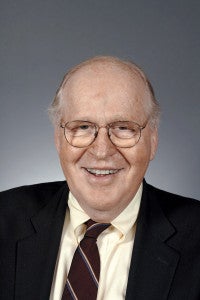
“If I had gone to China with the impression that psychiatrists, and particularly forensic psychiatrists, were power players in a monolithic Chinese communist bureaucracy, I came away with a quite different impression. Psychiatry in China is a struggling profession, with little market power and low income, low prestige, low sociocultural value and little public influence. The consistent response we got from the Chinese psychiatrists we met in Beijing was that their government had no need (and no use) for psychiatrists in dealing with political dissidents.”
Professor Alan A. Stone, on the Chinese government and psychiatry, Psychiatric Times, May 2005.
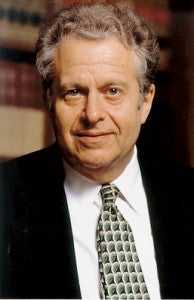
In more than 30 oral arguments over the past 25 years, I never saw [Chief Justice Rehnquist] ask questions, as his colleagues sometimes do, to hide the ball, parade his brilliance, show up a colleague or play to the galleries. When he thought you were approaching a dead end, he told you so. …
“That Chief Justice Rehnquist was unlike both puritanical conservatives like Warren E. Burger and movement conservatives like Antonin Scalia was evident in the character of his questions in the two gay rights cases I argued in the mid-1980s, one about firing teachers for ‘advocating’ homosexual activity and the other about prosecuting consenting adults for same-sex intimacy. In neither case did his questions have the ‘I’m shocked’ tenor of Chief Justice Burger’s contribution to the dialogue. Justice Rehnquist simply pressed me appropriately on the absence of evidence that the challenged school board regulation had ‘ever been applied to a single living soul.’ And when I argued that consenting adults have a fundamental right to engage privately in the sex acts of their choice, while Chief Justice Burger and Justice Byron R. White could barely contain their disgust, Justice Rehnquist calmly pursued the question of just when and how that ‘fundamental right’ arose.”
Professor Laurence Tribe ’66, on the late Chief Justice William H. Rehnquist, The New York Times, Sept. 6.
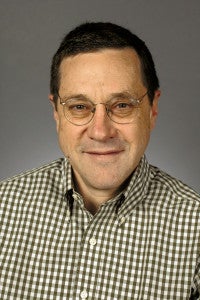
“Does a $253 million message need to be sent to Merck for the death of [Robert] Ernst? The usual figure courts use to deter wrongful deaths, say, from automobile accidents is rarely more than a few million dollars. Economists have suggested that there is no reason to beef up usual damage awards unless there is a chance that a company can escape liability for harm. If a company covertly dumps pollutants and we happen to catch it, a penalty exceeding the harm done ought to be imposed in order to deter more dumping. But the argument that Merck might escape liability for harm does not seem to apply to Vioxx, for it was sold to millions of individuals, Merck is regulated by the FDA, and epidemiologists and lawyers are on the watch for problems with drugs.”
Professor Steven Shavell and A. Mitchell Polinsky, on the Vioxx verdict, The Boston Globe, Aug. 23.
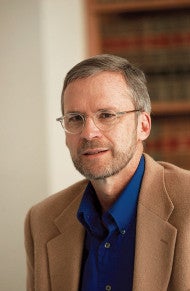
“Supreme Court appointments are like ‘Law & Order’ episodes: The cast of characters changes, but the dialogue always sounds the same. Whoever the nominees are, the script for the inevitable confirmation battles has already been written. Abortion, church and state, more abortion, gay rights, and still more abortion–interest groups and senators are setting the table, and that’s the menu. It’s strangely disconnected from what the Supreme Court actually does and from the places where the justices really exercise power. …”
By contrast, another aspect of the Court’s work affects lots of lives. The United States incarcerates more than 2 million people in its prisons and jails today, roughly seven times the number held in 1970 and five times the 1980 figure. For the past 40 years, the Supreme Court has helped shape the process that puts those men and women behind bars. When can police officers frisk suspects on the street or search their cars? When do police have to give Miranda warnings? How hard can they push suspects to confess–and how hard can prosecutors push defendants to plead guilty? How must juries be selected? Which sentencing procedures are permissible, and which ones aren’t? Supreme Court justices answer all these questions and dozens more like them.
“The answers matter enormously. Which means that the Supreme Court’s most important job is not managing the culture wars. Regulating the never-ending war on crime is a much bigger task. Alas, it may also be the job the Court does worst.”
Professor William Stuntz, on the Court’s effect on criminal law, The New Republic Online, July 19.